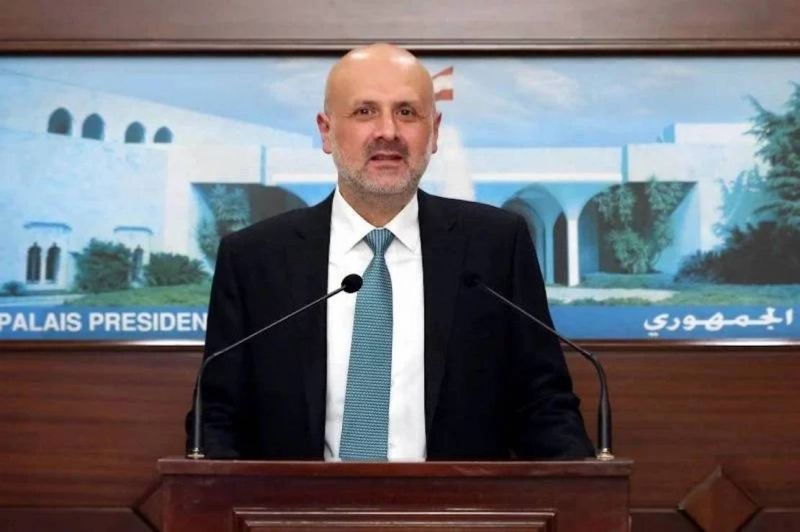
Lebanese Interior Minister Bassam Maoulaoui in Baabda, January 13, 2022. (Photo: Dalati and Nohra)
BEIRUT — Interior Minister Bassam Mawlawi on Saturday condemned a series of attacks upon Saudi Arabia Friday. The attacks were attributed to Yemen’s Houthis and Riyadh responded with airstrikes of its own.
Here’s what we know:
• Mawlawi’s statement comes in the context of attempts to reestablish ties with Gulf monarchies, which were severed in October, in part over differences of opinion regarding Hezbollah’s role in the region, including its support of Yemen’s Houthi administration.
• “The targeting of Saudi safety is a clear and direct terrorist attack against Arab legitimacy,” Mawlawi tweeted. “We stand, as we always have, alongside the kingdom to face challenges launched against our common Arab security as well as any aggression towards Saudi sovereignty which goes against international accords,” he added.
• Mawlawi’s statements complement those of the United States, which described the attacks as “unacceptable.” Meanwhile, French government spokesperson Anne-Claire Legendre highlighted “the gravity of the threat [tied to] the proliferation of drones and missiles.”
• Houthi rebels carried out sixteen attacks upon the south of the Wahhabi kingdom and in Jeddah, on the Red Sea coast. The actions targeted infrastructure, with one attack igniting a gigantic fire at an oil storage site in Jeddah, which has been hosting the Saudi Formula 1 Grand Prix. Saudi’s official news agency, SPA, announced that Riyadh carried out retaliatory air strikes Friday night and Saturday "against sources of threat in Sanaa and Hodeidah," in Yemen. "The military operation will continue until its objectives are achieved."
• Seven years since the first airstrikes in Yemen, on March 26, 2015, the Riyadh-led military intervention has had a limited impact upon facts on the ground and accentuated one of the worst humanitarian crises in the world. While they stopped the Houthi advance in the South and East, air assaults have not dislodged the Houthis from the north of the country, including the capital Sanaa. According to the UN, the conflict has caused the deaths of nearly 380,000 people, most linked to hunger, disease and lack of clean drinking water.
• The Saudi-dominated Gulf Cooperation Council (GCC), which groups six Arab petro-monarchies, indicated in mid-March that it was ready to organize peace talks with the Houthis, but the latter refused to participate if they were held in Riyadh. The coalition on Friday urged the Houthis to "show restraint" and to give the talks a chance.